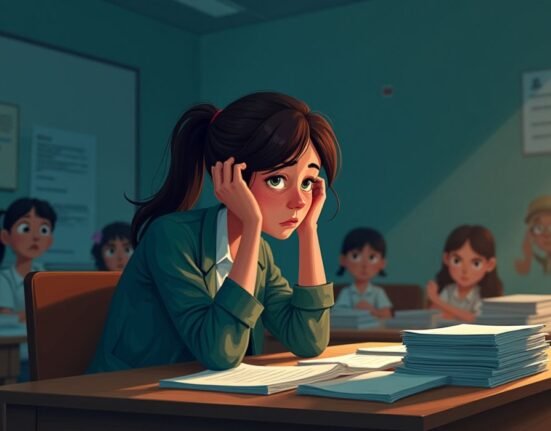The term victim mentality in the field of psychology may be couched in different ways and, frequently, misinterpreted. People sometimes feel powerless when dealing with difficult situations. Instead of taking responsibility for their failures, they blame external factors. Of course, everybody experiences true suffering at some point in life; however, developing the victim mindset indeed has immense repercussions on one’s psychological health, social interactions, and, in fact, all spheres of life.
Read more: Victimology: Understanding the Psychological Impact of Crime
Roots Behind Victim Mentality
Psychologists explain that the origins of victim mentality stem from past experiences and childhood upbringing. They suggest that individuals who have felt lonely, helpless, or ignored during childhood are more likely to develop a victim mentality later in life. For instance, children who grow up in unfit homes—where they are abused, neglected, or overprotected—learn a deficient script. This script makes them see themselves as helpless victims.
Problems and negative aspects seen in society and culture can create a framework for developing a victim complex. This suggests that communities with a specific worldview, characterized by an external locus of control, may be more prone to developing a victim mentality. In this worldview, individuals believe that their desired goals or success are determined by external factors beyond their control, and they feel powerless to change the outcome.
For instance, imagine a community where people commonly believe that their fate is entirely determined by luck or destiny, and they have little influence over their own lives. In such a community, individuals might develop a victim mentality because they feel that their efforts are futile in the face of external forces. For instance, someone who grows up in such a community might attribute their failures to bad luck rather than acknowledging their actions or decisions. This perpetuates the belief that they are powerless to change their circumstances, reinforcing a victim mindset. Influence from the media, friends, and other authoritative figures unnecessarily amplifying the narrative of being a victim might progress the mindset.
Read More: The Psychology of Self-Perception
Cognitive Biases
Cognitive biases can be considered as one of the key factors that lead to the formation of the victim mentality. These are systematic errors that trick people into interpreting information to confirm their pre-existing beliefs. They make people irrationally expect the worst from any random event. The construct of victim mentality contains several bias types that are crucial for this construct as follows:
- Attribution Bias: Having a victim mentality is characterized by explaining misfortunes as results of causes that are beyond the person’s control as well as denying or minimizing one’s part in it. This tendency of feeling helpless because of failure and blaming it on external conditions can feed feelings of being a victim. For Example, Consider someone failing an exam. Instead of accepting their lack of preparation, they solely blame external factors like the exam’s difficulty or distractions. By denying personal responsibility, they reinforce their victim mentality.
- Confirmation Bias: People who see themselves as victims may only pay attention to information that supports their belief of being treated unfairly, and ignore things that don’t. This makes them feel more like victims and stops them from thinking about other views. During the Red Scare in the 1950s in the United States, Senator Joseph McCarthy and his supporters believed that communist infiltration was rampant in American society. They used confirmation bias to interpret various behaviours or associations as evidence of communist sympathies while disregarding evidence to the contrary. This led to the persecution of many individuals based on flimsy or fabricated evidence.
- Catastrophizing: Victim thinking often makes bad events seem even worse and impossible to fix. This way of thinking can make people feel like they can’t handle tough times and make them feel more like victims. When faced with losing their job, someone might think, “I’ll never find another job, I’m worthless.” This way of thinking worsens the situation and reinforces their victim mentality.
Read More: Cognitive Biases in Everyday Life
Emotional Factors in Victim Mentality
Emotional factors play a significant role in shaping a victim mentality. Individuals with a victim mindset are prone to feelings of anger, jealousy, and self-pity. Such feelings not only strengthen the belief of being a target but also hinder problem-solving, presentation, and interpersonal interactions.
In addition, victim mentality may be useful in reacting to difficult, painful feelings like those referred to by Herman (1992) for managing emotional trauma. Attribution is a coping technique that allows people to shift the responsibility away from the self and thus avoid thinking about uncomfortable facts in/their lives. This avoidance strategy proves counterproductive in the long run. It inhibits individual development and merely reiterates the role of the victim.
Effects of Victimhood on Relationships
The concept of victim mentality impacts behaviour and relationships. In communication, the victims may be passive or aggressive in conduct, expecting other people to solve the issue without coming forward to do it themselves. This is particularly pressing as it distorts the relationships that people have with each other and results in feelings of resentment from the people.
Also, victim mentality does not allow the person to develop and succeed in life, and that is one of the most critical effects. When people accept the notion that the forces of fate are against them, the man in question may give up and work little to change his life around. It can be observed in vital sectors of life such as employment, learning and health thus denying one a good prospect for success and happiness.
Signs you are Suffering from the victim mindset
Victim mentality is not some medical disorder but a psychological concept showcasing its signs on an individual’s behaviour, thoughts and actions. Such as –
- Instead of admitting to your mistakes or difficulties you always try to find someone/something to be at fault.
- Present fear, or a sense of helplessness or hopelessness and feeling that there is no point in trying to change things.
- Avoiding responsibility and dependency on the feelings of other people.
- You feel like you can do nothing about a certain situation and thus never act on it.
- You try to escape taking accountability and avoid criticism.
- Failure to take time to address past and current issues, but rather focusing on the eventualities for growth.
- Reliance on others to find a solution to a problem without personally trying to come up with one.
- Counteract – Oppose and try your best not to yield to any attempts at altering your way of thinking or acting
Read More: Psychology Behind Growth Mindset
Overcoming the Victim Mindset
There are several ways to overcome the victim mindset mainly focusing on cognitive restructuring and enhancing emotional awareness, such as
- Taking responsibility: to overcome the victim mentality, the first thing to learn is to take responsibility for your actions, this will give you a sense of agency in situations, your thoughts and actions; making a positive impact on how you perceive the environment
- Forgiveness: Forgiving is a crucial trait that helps to overcome negative feelings such as jealousy, anger, and resentment that come from blaming others.
- Seek support: while on the journey of self-improvement, it’s important to be patient and kind with yourself, and seek support whenever needed to practice self-growth.
- Recognize the patterns: recognize the patterns of victimhood and behaviour whenever something bad happens, and unlearn and reconstruct the thought patterns to make a permanent change in your belief system.
In conclusion, It is a self–deprecating mindset that people with a victim mentality constantly feel that they are victims, and they have little control over their lives. It can be related to childhood experience, perceiving and emotional processes that take place in a person’s mind; it is closely connected with the manifestation of actions, interpersonal interactions, and individual growth. Cognitive restructuring and personal resilience as well as equal adaptive coping strategies are the key elements to freeing oneself from victim mentality; thus, one can truly gain an opportunity to gain the power of personal choice and restore one’s freedom and dignity.
References +
- Andronnikova, O. O., Kudinov, S. I., & Personalities, C. S. (2021). Cognitive attitudes and biases of victim mentality. ResearchGate. https://www.researchgate.net/publication/364279134_Cognitive_Attitudes_and_Biases_of_Victim_Mentality
- Gollwitzer, M., Süssenbach, P., & Hannuschke, M. (2015). Victimization experiences and the stabilization of victim sensitivity. Frontiers in Psychology, 6. https://doi.org/10.3389/fpsyg.2015.00439
- Kaufman, S. B. (2024, February 20). Unraveling the mindset of victimhood. Scientific American. https://www.scientificamerican.com/article/unraveling-the-mindset-of-victimhood/
- De Vries, M. F. K. (2012). Are you a victim of the victim syndrome? Social Science Research Network. https://doi.org/10.2139/ssrn.2116238













Leave feedback about this